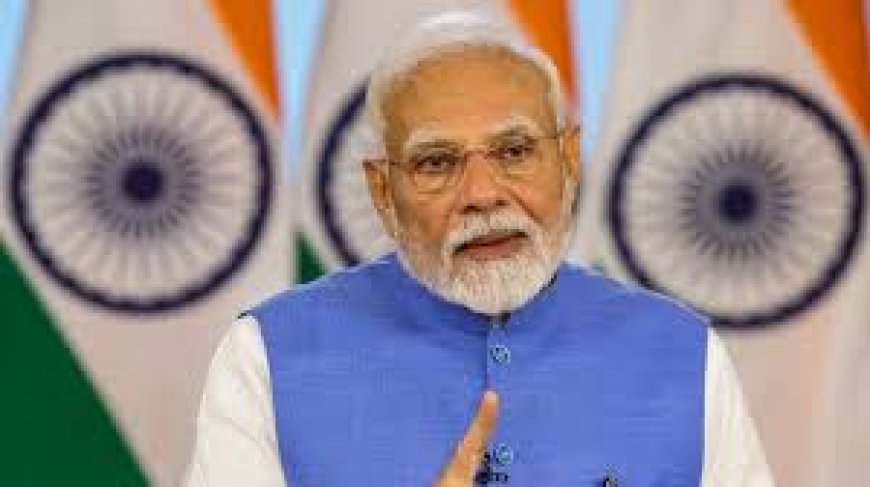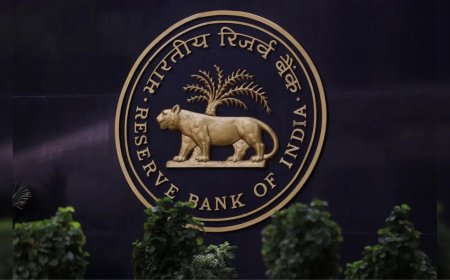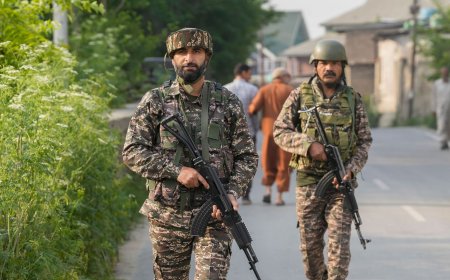No Indus Waters Treaty relief for Pakistan? PM Modi's big message during Lok Sabha speech
PM Modi signals a tougher stance on the Indus Waters Treaty during his Lok Sabha speech, hinting at using India's full water rights. Analysts see a strategic shift with major infrastructure implications.

New Delhi, July 29, 2025 – Prime Minister Narendra Modi has stirred fresh geopolitical debate with his pointed remarks in the Lok Sabha on Monday, signaling that India may adopt a more assertive stance regarding the Indus Waters Treaty (IWT) with Pakistan. In his speech during the ongoing session of Parliament, PM Modi stopped short of announcing any formal withdrawal but issued a veiled warning that India will no longer tolerate asymmetric arrangements that compromise its national interests.
The statement, which comes amidst heightened diplomatic tensions and cross-border skirmishes, is being widely interpreted as a message to Islamabad that the historical water-sharing agreement, long viewed as sacrosanct despite multiple wars, may no longer be immune to review.
Historical Context: The Indus Waters Treaty
The Indus Waters Treaty, brokered by the World Bank and signed in 1960 between India and Pakistan, governs the distribution of water from the six rivers of the Indus basin. Under the treaty, India controls the eastern rivers — Ravi, Beas, and Sutlej — while Pakistan receives water from the western rivers — Indus, Jhelum, and Chenab. The treaty has survived three major wars, earning global recognition as a rare success in conflict-prone regions.
However, in recent years, India has expressed frustration over Pakistan’s alleged misuse of the treaty for political leverage and its continued support for terrorism. Indian officials have also accused Pakistan of dragging out dispute resolution mechanisms under the treaty to stall critical hydroelectric projects like Kishanganga and Ratle.
PM Modi’s Message: “Nation First” Approach
During the Lok Sabha speech, PM Modi did not mince words. “India cannot be expected to uphold one-sided responsibilities in a treaty when the other side continues to violate the spirit of bilateral cooperation. Water is a national resource, not a tool of coercion,” he declared.
He further emphasized that the government is committed to using every drop of India’s share of river water under the treaty and hinted at accelerating dam construction and water diversion projects to prevent “wastage into hostile territory.”
The message was clear: while India will not breach international law, it will no longer maintain a passive posture in the face of provocation.
Analysts React: Diplomatic Chess Game or Realignment?
Strategic affairs expert Dr. C. Raja Mohan sees the speech as a deliberate signaling exercise. “PM Modi’s remarks are part of a calibrated strategy to reassert India’s sovereign rights. While a treaty abrogation is unlikely in the short term, India is clearly preparing the ground to maximize its entitled water usage, which will, in effect, reduce flows to Pakistan,” he told Business Standard.
Others believe it’s also a pressure tactic. “This is a diplomatic lever. Every time Pakistan internationalizes bilateral issues like Kashmir, India reminds them of what’s at stake — including water,” noted Lt. Gen. (Retd.) Syed Ata Hasnain.
Market and Infrastructure Implications
The Prime Minister’s speech is expected to bolster domestic water infrastructure initiatives. Stocks of infrastructure firms involved in hydroelectric projects, irrigation systems, and river linking programs saw a moderate uptick following the speech.
Larsen & Toubro (L&T), Bharat Heavy Electricals Ltd. (BHEL), and NHPC Ltd. recorded intraday gains amid renewed optimism around dam construction projects. The government is reportedly preparing to fast-track the Shahpur Kandi and Ujh multi-purpose projects in Jammu & Kashmir.
“Infrastructure players are watching closely. A ramp-up in water utilization projects could unlock investments upwards of ₹25,000 crore in the next five years,” said Shreya Pandit, water policy researcher at Brookings India.
Investor Outlook: Strategic Infrastructure the New Frontier
While geopolitical tension typically unnerves investors, this case presents a nuanced picture. Analysts point to a structural long-term opportunity in India’s assertiveness in utilizing its water rights. The increasing priority given to national resource security aligns with New Delhi’s broader strategic doctrine, especially under the "Atmanirbhar Bharat" (self-reliant India) vision.
Moreover, water security is becoming integral to ESG (Environmental, Social, Governance) considerations, with institutional investors seeking clarity on sovereign resource management.
“Investors with a long-term lens may find India’s policy shift as an enabler of infrastructure growth. Dams, irrigation systems, and clean energy projects stand to benefit,” said Nirav Mehta, head of research at JM Financial.
However, others caution that any move perceived as undermining international obligations could invite global scrutiny. “New Delhi must balance assertiveness with diplomacy to avoid reputational risk,” said former ambassador Gautam Bambawale.
International Reactions and the Road Ahead
The Pakistani Foreign Office has condemned PM Modi’s comments as “provocative and irresponsible,” warning of dire consequences if India acts unilaterally. Meanwhile, the World Bank — which plays a neutral role under the treaty — has called for restraint and adherence to dispute-resolution mechanisms.
Back in India, political consensus seems to be forming around the need to review older agreements that no longer reflect contemporary realities. Former Foreign Secretary Shyam Saran has called for a “comprehensive legal and hydrological audit” of the IWT.
For now, the government has not initiated any formal steps to exit or renegotiate the treaty, but the writing on the wall is clear: the status quo is no longer guaranteed.
What's Your Reaction?
 Like
0
Like
0
 Dislike
0
Dislike
0
 Love
0
Love
0
 Funny
0
Funny
0
 Angry
0
Angry
0
 Sad
0
Sad
0
 Wow
0
Wow
0












































































